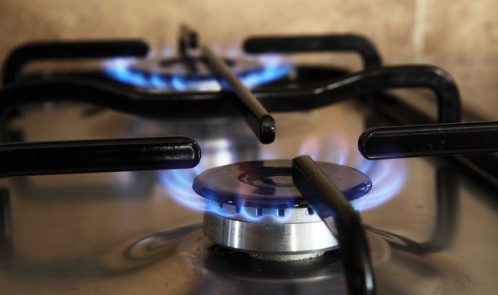Six tips to save money in your kitchen

Energy bills, as ever, are a hot topic at the moment, and it seems that everyone is trying to cut back on their gas and electricity consumption. But even though it is one of the busiest rooms in a house and one that guzzles the most energy, the kitchen often gets overlooked, as many people believe they can’t save here. But that just si mply isn’t the case, and you don’t need to invest in expensive gadgets or make drastic changes to make savings. So here are our top six tips for saving energy and money in the kitchen.
mply isn’t the case, and you don’t need to invest in expensive gadgets or make drastic changes to make savings. So here are our top six tips for saving energy and money in the kitchen.
Insulation
Kitchen appliances produce heat and so a great energy saving tip is to invest in insulation so that none of it is wasted. Cavity wall insulation could save you up to £100 per year on heating expenses depending on the size of your home. Likewise, investing in double-glazed windows will aid in the retention of heat, which makes them an obvious choice for anyone wanting to up their home’s energy efficiency.
Replace inefficient light bulbs
The Energy Saving Trust states that 18% of a household’s energy bill is attributed to lighting. Although everybody likes to be able to see what they’re cooking or eating, there’s no reason why it can’t be done efficiently. By swapping old halogen light bulbs for an energy-saving equivalent such as CFL or LED bulbs, you could cut lighting costs by £3 per light and £50 over the lifetime of the bulb. Delicious.
Fix leaking taps
According to the European Environment Agency, a dripping hot water tap can waste as much as one litre of water per hour, which can add up to more than a staggering 5,500 litres a year. If you have an electric boiler this could mean £45 of your cash is literally being washed down the drain. Get out the spanner, seek out all those annoying dripping taps and tighten them up once and for all.
Invest in Smart Home tech
Thanks to the internet and smartphones, there are now nifty apps which can help you monitor your home’s energy uses, even allowing you to turn appliances on and off when you are out and about. As these kinds of features become more common and accessible, it will be easier than ever for home and business owners to control their energy bills. By the year 2020, the government has committed to installing a smart meter into every home in the UK, so you can see exactly how much energy you are using, and where you can save.
Turn it off
Most kitchen appliances can be turned off at the plug without much difficulty and without disrupting programming, such as the microwave, toaster and kettle. A typical household could save up to £30 a year by just turning the oven off at the wall every night. Make it a habit to turn off the kettle after boiling the water, and you should start to see the results. If you’ve got decent heat-saving saucepans, you can turn your hobs off for the final few minutes of cooking, as the remaining heat will ensure your food is properly cooked.
Use a comparison website
Don’t ever buy a utility or insurance, without visiting one first. I’ve found Love Energy Savings, a comparison site that helps individuals and businesses save money on their energy bills by giving them an opportunity to compare the cheapest tariffs offered by energy providers.



Leave a Reply